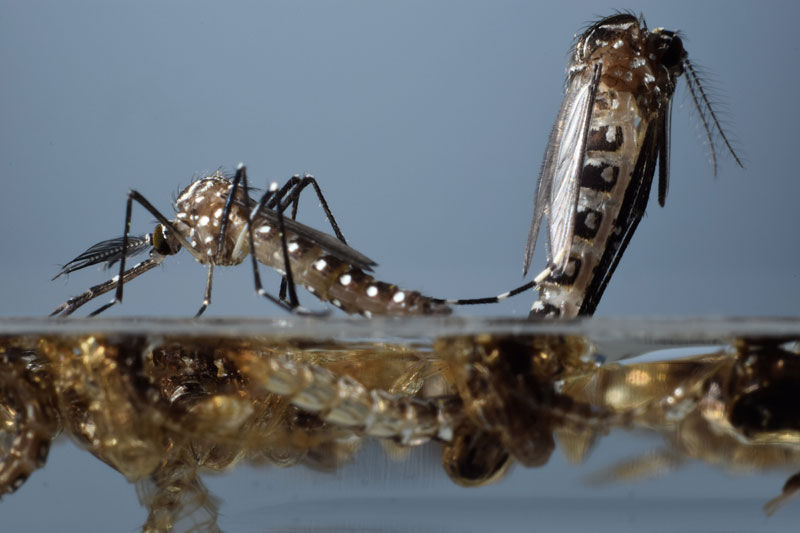INDIAN RIVER COUNTY — A proposed scientific trial on a tiny island a stone’s throw from Key West has caught the attention of Doug Carlson, Indian River County’s veteran mosquito control director and other mosquito researchers in Vero Beach.
A British company called Oxitec hopes to release several million genetically modified mosquitos in a trial in Key Haven within a year to demonstrate that the frankenskeeters can suppress the spread of the local mosquito with an ominous track record of spreading diseases such as Zika, dengue and chikungunya.
If it takes place, this would be the first U.S. trial of Oxitec’s self-limiting mosquitoes, though other genetically modified insects have been released in this country and Oxitec has released its GM mosquitoes in other nations.
Interestingly enough, Oxitec considered Vero Beach as a place to launch the trial but ended up preferring the Lower Keys.
Here’s how the genetically-modified mosquito technology works: The males, which do not bite, have been altered so that when they mate with a female, the offspring die and don’t make it to adulthood.
Oxitec creates the eggs for its GM mosquito in a United Kingdom facility, and then grows the flying male insect to adulthood in a plant in Marathon in the Keys. In a typical trial, between 3 million and 4 million males are released during a six- to nine-month period.
“They’re modifying one mosquito species,” said Carlson, a leading figure in Florida’s mosquito-control community. “It makes good sense. It’s a serious transmitter of diseases around the world.”
This particular mosquito – Aedes aegypti – is insidious because it doesn’t wander away once it finds hospitable human hosts, he noted. “They stay close to where the blood is and don’t go more than 100 yards,” Carlson said.
Vero Beach is home to the University of Florida Medical Entomology Laboratory on Oslo Road, where lab director Jorge Rey and his 12 fellow faculty members and mosquito researchers also are keeping tabs on Oxitec’s work.
“It could be a useful technique to control mosquitoes that carry disease,” Rey said. “It’s relatively environmentally safe. You don’t have to use pesticides.”
Rey understands some people will be concerned with genetically modifying a mosquito. Indeed, residents in the Keys who oppose the release of the genetically modified mosquitoes have signed online petitions and showed up at Florida Keys Mosquito Control Board meetings to express their opposition.
“Some people are leery that they are genetically modified. Some people also have problems with using chemicals,” he said.
One person who doesn’t take issue with genetically modified mosquitos is U.S. Sen. Bill Nelson.
In a statement last month when the CDC confirmed the first Zika-related death in the U.S., Nelson said, “The death of an American citizen should serve as a wake-up call to all those in Congress who continue to block our efforts to stop the spread of this virus. While this may be the first Zika-related death in our country, it won’t be the last if Congress does not start taking this virus seriously.”

